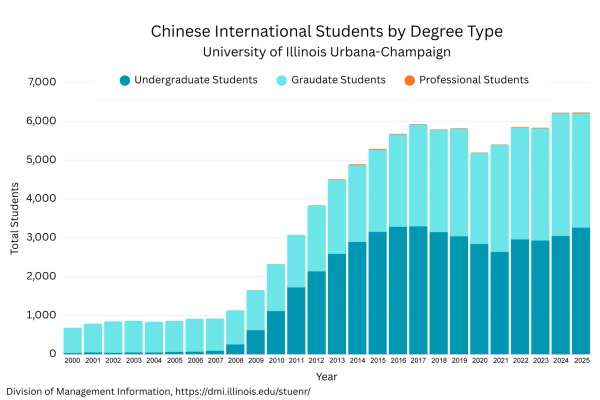UI student talks to high schoolers about coming out
Mar 31, 2005
Last updated on May 11, 2016 at 08:04 p.m.
Philip Reames stands at the front of a classroom at his alma mater, Mission Viejo High School in Mission Viejo, Calif., wearing a navy blue T-shirt reading “Gay? Lesbian? Bisexual? Transgender? Fine by me.” Scattered before him sit members and supporters of the newly founded Gay-Straight Alliance.
Now a sophomore in engineering at the University, Reames returned to his former school March 25 to speak about issues facing lesbian, gay, bisexual and transgendered youth, and his experiences with coming out as a member of the LGBT community.
“I want to make sure that if a student is where I was, that they know that they can go on and that they are not alone,” Reames said.
According to Reames, he first suspected he was gay when he was about 15 years old, but it took him several years to be sure. High school was difficult for him, and he experienced deep depression and mental torment.
Get The Daily Illini in your inbox!
“I did the whole ‘Am I really gay? Well, maybe I’m bisexual,’ thing before concluding that, yes, I am gay. I was really torn up about this for a long time,” he said. “The struggle of realizing ‘Yes, I am gay’ is a huge emotional burden because you are figuring out that you are, not who you thought you were.”
“It takes a great deal of courage to come out,” said LGBT office director Curt McKay. “It can lead to a lot of distress, a lot of anxiety and, in some cases, a lot of preparation beforehand.”
Mission Viejo was also not very accepting of LGBT students while he went there, Reames said.
“This school district is very conservative,” said Geri McClure, the school’s Gay-Straight Alliance monitor. “When they were first starting, no one would come forward to sponsor the group.”
Reames said he was impressed by the students who started the high school’s alliance and expressed his gratitude to those brave enough to stand against the intolerance shown to many gay and bisexual students.
Moving to Champaign-Urbana has been a positive experience, Reames said. He said he feels that he has found a very accepting community at the University.
“When I met my (first) roommate, one of the first things I said to the guy was ‘I am gay. Is that going to be a problem?’ And the best thing the guy did was say ‘So what?'” he said.
College has proven to be a time of growth and self-acceptance for Reames, thanks to organizations such as the University’s Office for LGBT Concerns.
“Just having the option to get involved on campus, knowing the support was there, was great for me,” Reames said.
That support has been invaluable, he said.
“I know there are people I can talk to and that they will understand where I have been and am coming from,” said Reames, who serves as the political chair of PRIDE, the oldest gay support organization on campus.
Gay, bisexual and transgender youth experience many struggles, from constant harassment and bullying to severe depression and homelessness after being cut off by unaccepting families.
LGBT individuals make up approximately 10 percent of the population, but account for 30 percent of suicides, according to the Gay Men’s Health of Edinburgh, Scotland. According to a recent GMH survey of LGBT individuals age 26 and under, approximately 54 percent of LGBT youth consider suicide and almost 30 percent have attempted it.
Reames said he hopes that his experiences will allow other LGBT students to find the courage to keep going.
“It gets better,” he said. “Remember that.”





